United Arab Emirates’ (UAE) most significant tax reform, Value Added Tax (VAT) which was introduced in January 2018, is set to complete 1000 days and it is worthwhile to look back on its incredible journey.
As we all had witnessed, there were concerns about the implementation of VAT from 1st January 2018, since this reform’s impact was far-reaching with changes required in Business processes & Models, supply chain, IT infrastructure, pricing, working capital, compliance and most importantly “Change in Culture”. It is brilliant to see how Federal Tax Authority (FTA) has handled the VAT implementation from Day 1.
Day 1 to Day 1000 is not just adding three zeros but is a combination of enormous efforts by all the Stakeholders in the country.
CHALLENGES FACED DURING TRANSITION AND TILL DATE
VAT challenges will still be fresh to Retail and FMCG and few other businesses who deals directly with end customers due to the surge in sales in December 2017, where the end consumer wanted to save 5% of VAT before the introduction. It is still fresh in my mind, as it was Dubai Shopping Festival (DSF) retailers were open until mid-night of 31st December and businesses had to realign the prices at dawn and take necessary decisions.
We all have successfully crossed the bridge and the early bumpy roads and are now in a different phase with challenges that are important to understand and mitigate. Some of the most common challenges faced by businesses include:
Transitional Challenges:
Transitional challenges are common whenever any new Law is introduced and it is crucial because it needs to distinguish the applicability of Law between two periods. Clarity is required to determine the applicability of VAT on transactions that were entered or concluded before the Law was effective.
There were many challenges faced around this and the impact of those challenges is still ongoing when FTA picks up this in their Audit process.
Cashflow Management:
There were concerns about the working capital due to different interpretations of Law, which blocked the cash for the suppliers of goods and services. The delay in payment of invoices to suppliers had impacted their cash position as they are required to pay VAT within the due date.
Non-payment of VAT to FTA within the prescribed due date resulted in penalties for businesses.
IT System & Related Infrastructure:
The IT system set up and related preparations were indeed inadequate. Imperfect system setup, improper capturing of data and incorrect reports resulted in erroneous VAT returns. Timely availability of data as required by FTA was a big challenge faced by many businesses.
Systems were not equipped to produce detailed VAT reports, making it difficult to reconcile differences between the general ledger and system-generated VAT reports.
Advertised/ Contractual Prices
For B2C supplies, advertised prices were to be treated as inclusive of VAT, however not all retail outlets were able to comply with this on time leading to customers rightfully refusing to pay more than the advertised price. For B2B supplies, contractual agreements straddling 1 January 2018 were often disputed to determine if the agreed supply values are inclusive of VAT.
Date of Supply
The date of supply rules determines when the VAT is due to the FTA. This is critical for reporting purposes, but internal accounting systems were not adequately designed and configured to capture such dates. Reporting delays can be expected, but the delays can result in non-compliance, thus exposing businesses to penalties for incorrect return filings and delays in VAT payments.
Non-recoverable Input Tax
In many cases, due to a lack of knowledge and insufficient training to the accounts payable team, input tax blocked from recovery on specific expenses (such as entertainment or motor vehicle expenses) was availed in the periodic VAT returns leading to underpayments of VAT. Underpayment of net VAT would eventually lead to penalties from FTA if not corrected in time.
Incorrect Recovery of Recoverable Input Tax
Recoverable Input tax was initially availed on invalid tax invoices as Accounts Payable team were not fully trained on identifying the compliance requirements for tax invoices. Systems were also not fully geared up to identify the gaps. Many businesses still battle with non-compliant tax invoices from vendors.
Return Filing and Payment Related Challenges
Businesses faced various challenges to file the VAT returns on time. If we were to conduct a survey and ask businesses if they can guarantee that their first three returns are 100% accurate, it would be fair to assume that not many would be confident to answer with a “Yes”.
Delay in return preparation and not making adequate payment arrangements resulted in penalties for businesses. Even an hour delay in payment after the due date resulted in penalties as the payment will not be reflecting in the FTA system.
Designated Zone (DZ)and its Definition:
The Designated Zone was not well defined initially and was not clear which free zone will be covered under DZ, until FTA published the list later.
Documentation
Documentation is the key in each transaction, and it is essential to have relevant documents to support the underlying transactions. There were and are challenges to ensure the completeness and availability of the right documents.
It is difficult to prove the intention and essence of transactions in the absence of proper documents.
HOW HAS FTA HELPED IN JOURNEY
FTA has handled the implementation and addressed ongoing matters with utmost care. The following initiatives of FTA helped businesses in the UAE immensely.
• Introduction of Voluntary Disclosure
• Introduction of Private Clarification system
• Issuance of Public Clarifications
• Issuance of VAT Guides
• Smoothening Tourist VAT Refunds
• Strengthening VAT Registration process
• Issuance and approval of VAT Refunds
• Supportive Audit system
WHAT SHOULD TAXPAYERS LOOK FOR IN FUTURE
Businesses will have to gear up and ensure compliances are taken seriously. I would like to draw your attention to the vital reference from Business law which can also be referred to the VAT Law in the UAE – “Ignorance of Law is not an Excuse.”
It is imperative that businesses review their tax positions, documentations and voluntarily rectify mistakes, if any. Business entities can focus on the following:
• Follow regular updates on UAE VAT laws, regulations
• and implement the same efficiently.
• Implement maker-checker processes before sign-off.
• Keep reconciliations ready.
• Strengthen internal control systems and procedures.
• Conduct regular VAT training sessions to update the
• internal teams on the latest VAT developments.
• To carry periodical VAT health checks.
• Seek guidance or clarification in case of ambiguity in
• interpretation of Law.
Finally, be ready for audit as that might be the “Routine” in next 1000 days.!

